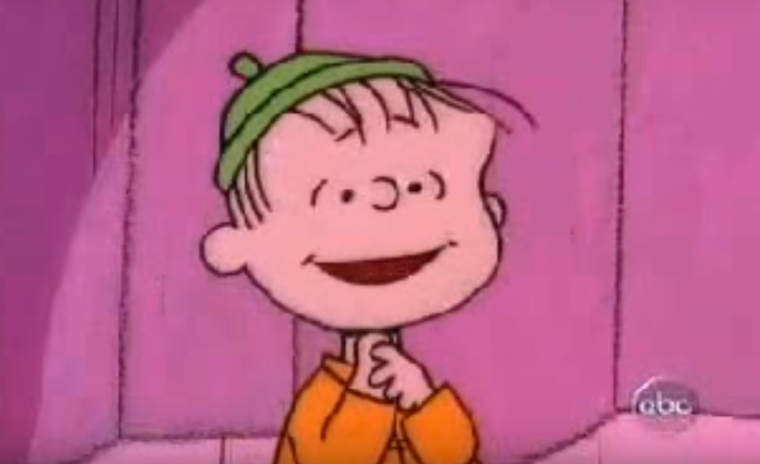What Christmas is all about: School district removes Linus' lines

WITTENSVILLE, Ky. (Christian Examiner) – W.R. Castle Elementary School students are being prohibited from quoting from the Bible in their performance of "A Charlie Brown Christmas" this season.
Johnson County Schools Superintendent Thomas Salyer said the lines, delivered by Linus in response to Charlie Brown's famous question—"Isn't there anyone who knows what Christmas is all about?"—were removed because officials had received complaints about religious references.
"As superintendent of Johnson County Schools, I recognize the significance of Christmas and the traditions and beliefs associated with this holiday," Salyer said, according to the Lexington Herald-Leader. "In accordance with federal laws, our programs will follow appropriate regulations."
"We are just trying to meet the letter of the law," he added.
Terry Mattingly at GetReligion.org criticizes both the school district and the newspaper for missing the essential points at issue in the situation, calling the Herald-Leader's story "hollow."
Mattingly wants to know what Linus will say instead. "What readers need to know is this: What are educators proposing as the content of the Linus speech in this new, edited version of the script, which presumably contains zero offensive trigger language linked to St. Luke or anyone else tied to Christmas," he wrote.
EDITING OUT THE BIBLE
"A Charlie Brown Christmas" producer Lee Mendelson remembers Charles Schultz' comments about choosing to include Bible verses in the production: "If we don't do it, who will?" Mendelson said Schultz said, according to the Washington Post.
The Lexington newspaper references the school district's dilemma, the objections and counter-protestors who appeared in defense of the lines, and the approval of the American Civil Liberties Union of Kentucky, which praises Salyer's decision.
About 30 protestors against removing Linus' lines stood outside the county board of education office holding signs saying, "Jesus is the Reason," "Standing for Christ," and "One Nation Under God."
But Mattingly wonders what the point of the play will be without Linus' answer. "Think about this: They can't leave a hole in the script, since the speech by Linus is the turning point of the entire story arc."
In the 30-minute film, which aired on CBS in 1965, Linus, alone on a stage, simply and directly quotes Luke 2:8-14 in which angels announce Christ's birth to shepherds. Linus concludes, "That's what Christmas is all about, Charlie Brown."
Charlie Brown thinks about Linus' statement and breaks into a smile.
Without that statement, the purpose of the story—which centers around the meaning of Christmas, after all—is completely lost, Mattingly said. "So what does Linus say? Did anyone ask? Did school officials refuse to answer? I think we can assume that Linus is not allowed to recite the First Amendment. If the answer to the question, "Isn't there anyone who knows what Christmas is all about?" is not linked to the Christmas story, then what do the script editors have him say?"
'LETTER OF THE LAW'
Producer Mendelson knew the impact of Linus' speech would be significant. "Once we recorded the [voices of the] kids, I knew we had something strong—especially when the Linus actor read from the Bible," he said.
"Religious liberty requires protecting both the right of free exercise for individuals of every faith and the right to remain free from government coercion and promotion of religion," said ACLU communications manager Amber Brown.
The Lexington editors, to whom Mattingly's article is addressed, do make an oblique reference to controversy over the verses from Luke. In 1965, Peanuts creator Charles Schultz argued with producers who were reluctant to include the Bible verses but ultimately succeeded in preserving the lines, the paper said.
"The U.S. Supreme Court and the 6th Circuit are very clear that public school staff may not endorse any religion when acting in their official capacities and during school activities," Salyer said in a message to district schools including Castle Elementary.
Mattingly asks "the ultimate question" of the school district and the newspaper who did not address what "readers—secular and religious" are really wondering about the elementary school version of "A Charlie Brown Christmas" without any reference to religion.
Brown continued, "School involvement in the planning and promotion of a religious play after receiving a complaint from a concerned student or parent would show disregard for every student's right to remain free from government imposed religious viewpoints."
"What are the odds that Schulz would win that standoff with CBS executives today?" Mattingly said. "If that special was being produced now, what would Linus say?"